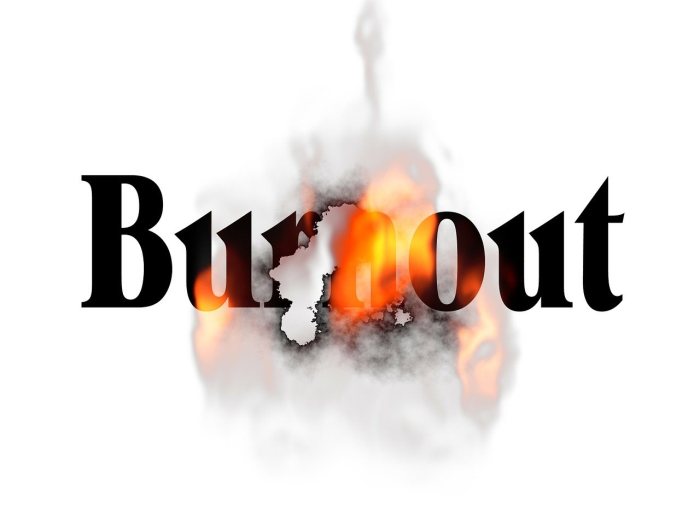For the majority of people working in healthcare, it’s as much a vocation as it is a job. Healthcare tends to attract dedicated, interested people who have a deep desire to help others. The fact they get paid for it is important, of course, but it’s not the only thing that attracts them to the role.

So the question has to be asked: why do so many established healthcare professionals leave the industry? If people once felt compelled to work in the medical field, why does that suddenly change?
There is no particular crowded marketplace regarding healthcare workers in the US, a country with historic problems of maintaining nursing staff levels. Not only are there not currently enough nurses, but the problem is being exacerbated by the number of nurses who leave the profession for good. It’s not just nurses, either; doctors are also retiring far earlier than normal and the country is facing a shortage of doctors in the lead up to 2025.
While there is no way of predicting exactly what is influencing doctors and nurses to leave their profession on an individual basis, several reasons have been suggested as part of a collective problem. So if you work in healthcare and have been struggling with your commitment to the job, it might be worth reading on, and seeing if there is anything you can do to bring back your love of your job once more.
Politics

No industry likes being at the top of the news cycle, especially as a constant political focus. Yet this is what healthcare experts have to put up with, day in day out. Healthcare is one of the key American political discussion points; and it’s taking its toll on the people that work in the front line.
People have been making predictions about the future of healthcare for years now. We’ve been told Obamacare forced a doctor to quit; other doctors rank Obamacare as an A grade bill. There is no cohesion even amongst doctors as to the future of the healthcare debate.
While the debate is likely shelved for the moment, living in the midst of all of this uncertainty is tough for those in the healthcare industry. The issue will once again raise its head, leading many people to conclude that their career path is in a constant state of flux – and to want to seek out other options.
Boredom
The initial training phase of working in healthcare is usually incredibly overwhelming. It’s hard work, it’s emotionally stressful, and it can feel like your head is going to burst from all the information that you’re trying to retain.
Over time, of course, you adapt. That’s entirely necessary; if every nurse or doctor were going through their work life with the same panicked energy they felt on their first shift, then the entire system would be a disaster waiting to happen. As workers adapt and get used to their role, they become better at that role – but the risk of boredom begins to creep in. When you’ve dealt with the same health issue a thousand times, there’s no doubt it can be tough to summon up the same measure of enthusiasm to assist with it.
If you find yourself in the position where you’re bored of your everyday duties, then the best option might be to consider further education. For nurses, pursuing a nursing RN to BSN online qualification could expand your career horizons and give you something to get excited about again. For doctors, you could always look at switching specialities or training in a secondary field.
There are always options to advance when it comes to healthcare. There’s no reason to be bored in the job if you’re willing to take on extra training, so it might be worth seeing if there’s a next step you can take to reignite your passion.
Burnout

Burnout is a real problem in the medical field, but worse still, it’s one that isn’t understood that well – even by medics themselves.
Burnout is the point that healthcare professionals reach that signifies they are detaching from their job. The stress, the worries, and the everyday routine become so overwhelming that it becomes almost impossible to function. If this continues to the point it becomes chronic then, eventually, healthcare workers just feel their job isn’t worth it anymore. Healthcare has a very high burnout rate.
Learning to identify the signs of burnout could make a huge difference. If you experience any of the following:
- Sudden onset of depression
- Feelings of stress
- Exhaustion
- Not wanting to talk or be involved with patients
- Decreased performance ability
Then you need to talk to someone, an expert, who can help you find the assistance you need. It’s possible to recover from burnout and rediscover your spark, but only if you catch it early. If you don’t, then you too might see leaving the healthcare field altogether as the only way of coping.
Poor Working Conditions
Doctors and nurses have a tough time of it when it comes to working conditions. Of course, this one is highly dependent on the hospital. Some will be open to their staff and comfortable to work in, offering a degree of flexibility and understanding.
Other hospitals and clinics… not so much. You may be being forced to work long hours, take shifts you don’t want, or cover for other staff to the point you’re not getting appropriate time off.
The obvious solution here is to seek a new place of employment, but that’s not always the answer. It’s too easy to find yourself out of the frying pan, but now into a new fire. You may have more luck trying to fix your existing working system – by complaining to superiors – than moving to another location, only to find the same issues.

There’s no doubt that healthcare is a difficult, time-consuming industry. Those in the medical field have the most asked of them by their jobs, and sometimes, the temptation to walk away is overwhelming. However, if you are ever tempted by this, try and remember why you got into the job in the first place. Couple that with the solutions mentioned above, and you might yet be able to rediscover your passion for your career.



Leave a Reply